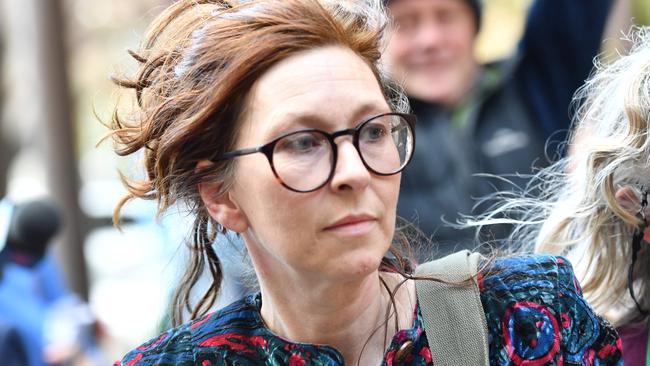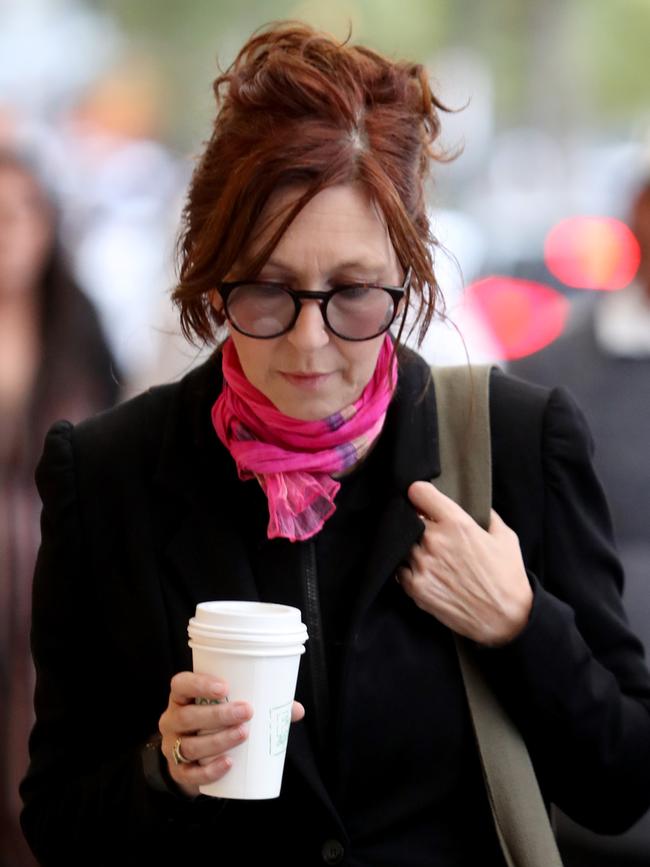Controversial midwife Lisa Barrett will go before the Supreme Court to defend her application to be admitted as a lawyer and barrister
A midwife who was acquitted of manslaughter over the deaths of two babies has applied to be a lawyer. But in a rare move, senior members of the profession are refusing to endorse her admission in the state’s highest court.

SA News
Don't miss out on the headlines from SA News. Followed categories will be added to My News.
Controversial midwife Lisa Barrett, who was acquitted of the manslaughter deaths of two babies she helped deliver, has applied to the Supreme Court to become a lawyer.
But, in an unusual move, the Board of Examiners – which includes senior lawyers and a Supreme Court master – has refused to recommend she be admitted as a lawyer and barrister after raising concerns she is not a “fit and proper person”.
Court documents released to The Advertiser show that Barrett, 53, completed her law degree in 2018, a year before she went on trial for manslaughter.
In an affidavit to the court, she declared that she had “not otherwise done or suffered anything likely to affect adversely (her) good fame and character”.
Disclosure of her manslaughter trial and other issues are believed to have been made in a sealed letter which was not released by the court.
The Board of Examiners is made up of 15 members of the legal community including one Master of the Supreme Court.

During a hearing before Supreme Court Justice Malcolm Blue asked the Law Society to appear at Barrett’s merit hearing and provide advice to the court on whether she should be admitted as a lawyer.
“The only issue that is raised by the admissions board is whether you’re a fit and proper person,” Justice Blue said.
Barrett’s application is expected to go before a full sitting of the Supreme Court later this year for a merit review.
Barrett was deregistered as a midwife in 2011 but continued to offer her services as a self-styled “birth advocate” during a series of home births.
Several children died during high-risk births while at home and under Barrett’s care.
The death of twin Tully Oliver Kavanagh two days after being born on October 7, 2011 was the subject of a coronial inquest.
In his findings handed down in 2012, Deputy State Coroner Anthony Schapel questioned the suitability of homebirths for high-risk pregnancies and also found Barrett had been performing the clinical roles of a midwife without registration.
Barrett refused to give evidence during the inquest, invoking privilege against self-incrimination, but her lawyer told reporters that his client was subject to a police investigation.
In June 2017, she was charged with two counts of manslaughter over the death of Tully in 2011 and an unnamed child in 2012.
She pleaded not guilty and, in 2019, went before Justice Ann Vanstone without a jury for an Australian-first trial of criminal negligence by a midwife during childbirth.
Barrett’s lawyers argued at trial that the children’s mothers had made a conscious decision to choose home birth, which had ultimately led to the death of the babies.
Following a complex seven-week trial, Justice Vanstone found Barrett not guilty of both charges.
She found that Barrett’s care and behaviour had been “less than competent” and short of the competency of a registered midwife, but concluded that criminal negligence had not been proven beyond reasonable doubt.
Barrett remained expressionless as the verdict was read out left the court without making comment.
Court documents show that Barrett graduated from Flinders University in 2018 with a Bachelor of Law and recently completed a Graduate Diploma of Legal Practice, a necessary step to be admitted to practice as a lawyer.
In her standard declaration to the court, Barrett said she had not been convicted of any crimes and was of good character.
“I have not been convicted or found guilty of a court of any offences, nor, as far as I am aware, are there any charges or proceedings outstanding against me in relation to any offence or offences alleged to have been committed by me,” she declared.
“I have not otherwise done or suffered anything likely to affect adversely my good fame and character, nor am I aware of any circumstances that might affect my fitness to be admitted as a practitioner.”
